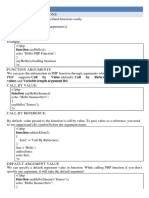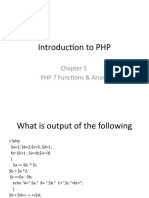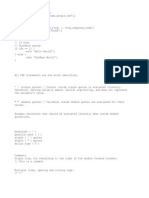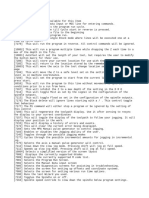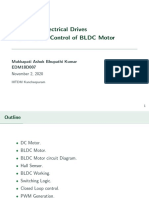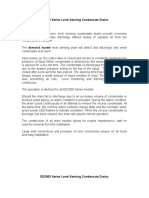0% found this document useful (0 votes)
11 views22 pagesCH 3 - Part 1
The document provides an overview of functions in PHP, detailing built-in and user-defined functions, their syntax, and usage. It covers function parameters, arguments, returning values, and various built-in functions related to date, time, and mathematical operations. Additionally, it includes examples to illustrate the use of these functions.
Uploaded by
tarunnarola.imca24Copyright
© © All Rights Reserved
We take content rights seriously. If you suspect this is your content, claim it here.
Available Formats
Download as PDF, TXT or read online on Scribd
0% found this document useful (0 votes)
11 views22 pagesCH 3 - Part 1
The document provides an overview of functions in PHP, detailing built-in and user-defined functions, their syntax, and usage. It covers function parameters, arguments, returning values, and various built-in functions related to date, time, and mathematical operations. Additionally, it includes examples to illustrate the use of these functions.
Uploaded by
tarunnarola.imca24Copyright
© © All Rights Reserved
We take content rights seriously. If you suspect this is your content, claim it here.
Available Formats
Download as PDF, TXT or read online on Scribd
/ 22























